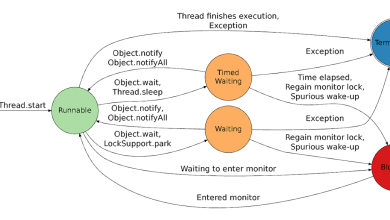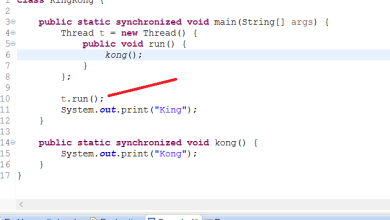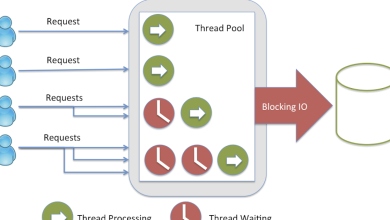Design a Vending Machine in Java

By the way, this kind of real-world problem is also a good exercise to improve your object-oriented analysis and design skills (see here), which is very important if you want to become a good application developer.
By designing a vending machine in Java or any other object-oriented language, you not only learn basics e.g. Encapsulation, Polymorphism, or Inheritance but also learns subtle details of how to use an abstract class and interface (see here) while solving a problem or designing an application.
Usually, this kind of problem also gives you an opportunity to utilize Java design patterns, as in this problem we will be using the Factory method pattern for creating different types of Vending Machine. I have talked about this question when I shared 20 software design questions in Java (here), and after that, I receive a lot of feedback to provide a solution for that question.
This two-part series of posts will provide a solution to the Vending machine problem in Java. By the way, this problem can be solved in a different way, and you should try to do that before looking into the solution given here.

Another resource which is very good on developing application and system design skill is UML for Java Programmers by Robert C. Martin, one of my favorite author. I have read several books about him like Clean Code, Clean Coder, and a book on software development using Agile. He is one of the best in teaching the OOP concept.
Solution and Coding
My implementation of Java Vending Machine has the following classes and interfaces :
VendingMachine
It defines the public API of a vending machine, usually, all high-level functionality should go in this class
VendingMachineImpl
A sample implementation of Vending Machine
VendingMachineFactory
A Factory class to create different kinds of Vending Machine
Item
Java Enum to represent Item served by Vending Machine
Inventory
Java class to represent an Inventory, used for creating the case and item inventory inside Vending Machine
Coin
Another Java Enum to represent Coins supported by Vending Machine
Bucket
A parameterized class to hold two objects. It’s kind of Pair class.
NotFullPaidException
An Exception is thrown by Vending Machine when a user tries to collect an item, without paying the full amount.
NotSufficientChangeException
Vending Machine throws this exception to indicate that it doesn’t have sufficient change to complete this request.
SoldOutExcepiton
Vending Machine throws this exception if the user requests a product that is sold out.

How to design Vending Machine in Java
Here is the complete code of Vending Machine in Java, make sure to test this code, and let me know if you face any issues. In this part, we will go into low level system design of Vending machine through classes and methods.
VendingMachine.java
The public API of a vending machine, usually all high-level functionality should go in this class.
package vending; import java.util.List; /** * Decleare public API for Vending Machine * @author Javin Paul */ public interface VendingMachine { public long selectItemAndGetPrice(Item item); public void insertCoin(Coin coin); public List<Coin> refund(); public Bucket<Item, List<Coin>> collectItemAndChange(); public void reset(); }
VendingMachineImpl.java
A sample implementation of the VendingMachine interface represents a real-world Vending Machine, which you see in your office, bus stand, railway station, and public places.
package vending; import java.util.ArrayList; import java.util.Collections; import java.util.List; /** * Sample implementation of Vending Machine in Java * @author Javin Paul */ public class VendingMachineImpl implements VendingMachine { private Inventory<Coin> cashInventory = new Inventory<Coin>(); private Inventory<Item> itemInventory = new Inventory<Item>(); private long totalSales; private Item currentItem; private long currentBalance; public VendingMachineImpl(){ initialize(); } private void initialize(){ //initialize machine with 5 coins of each denomination //and 5 cans of each Item for(Coin c : Coin.values()){ cashInventory.put(c, 5); } for(Item i : Item.values()){ itemInventory.put(i, 5); } } @Override public long selectItemAndGetPrice(Item item) { if(itemInventory.hasItem(item)){ currentItem = item; return currentItem.getPrice(); } throw new SoldOutException("Sold Out, Please buy another item"); } @Override public void insertCoin(Coin coin) { currentBalance = currentBalance + coin.getDenomination(); cashInventory.add(coin); } @Override public Bucket<Item, List<Coin>> collectItemAndChange() { Item item = collectItem(); totalSales = totalSales + currentItem.getPrice(); List<Coin> change = collectChange(); return new Bucket<Item, List<Coin>>(item, change); } private Item collectItem() throws NotSufficientChangeException, NotFullPaidException{ if(isFullPaid()){ if(hasSufficientChange()){ itemInventory.deduct(currentItem); return currentItem; } throw new NotSufficientChangeException("Not Sufficient change in Inventory"); } long remainingBalance = currentItem.getPrice() - currentBalance; throw new NotFullPaidException("Price not full paid, remaining : ", remainingBalance); } private List<Coin> collectChange() { long changeAmount = currentBalance - currentItem.getPrice(); List<Coin> change = getChange(changeAmount); updateCashInventory(change); currentBalance = 0; currentItem = null; return change; } @Override public List<Coin> refund(){ List<Coin> refund = getChange(currentBalance); updateCashInventory(refund); currentBalance = 0; currentItem = null; return refund; } private boolean isFullPaid() { if(currentBalance >= currentItem.getPrice()){ return true; } return false; } private List<Coin> getChange(long amount) throws NotSufficientChangeException{
List<Coin> changes = Collections.EMPTY_LIST; if(amount > 0){ changes = new ArrayList<Coin>(); long balance = amount; while(balance > 0){ if(balance >= Coin.QUARTER.getDenomination() && cashInventory.hasItem(Coin.QUARTER)){ changes.add(Coin.QUARTER); balance = balance - Coin.QUARTER.getDenomination(); continue; }else if(balance >= Coin.DIME.getDenomination() && cashInventory.hasItem(Coin.DIME)) { changes.add(Coin.DIME); balance = balance - Coin.DIME.getDenomination(); continue; }else if(balance >= Coin.NICKLE.getDenomination() && cashInventory.hasItem(Coin.NICKLE)) { changes.add(Coin.NICKLE); balance = balance - Coin.NICKLE.getDenomination(); continue; }else if(balance >= Coin.PENNY.getDenomination() && cashInventory.hasItem(Coin.PENNY)) { changes.add(Coin.PENNY); balance = balance - Coin.PENNY.getDenomination(); continue; }else{ throw new NotSufficientChangeException("NotSufficientChange, Please try another product"); } } } return changes; } @Override public void reset(){ cashInventory.clear(); itemInventory.clear(); totalSales = 0; currentItem = null; currentBalance = 0; } public void printStats(){ System.out.println("Total Sales : " + totalSales); System.out.println("Current Item Inventory : " + itemInventory); System.out.println("Current Cash Inventory : " + cashInventory); } private boolean hasSufficientChange(){ return hasSufficientChangeForAmount(currentBalance - currentItem.getPrice()); } private boolean hasSufficientChangeForAmount(long amount){ boolean hasChange = true; try{ getChange(amount); }catch(NotSufficientChangeException nsce){ return hasChange = false; } return hasChange; } private void updateCashInventory(List change) { for(Coin c : change){ cashInventory.deduct(c); } } public long getTotalSales(){ return totalSales; } }
VendingMachineFactory.java
A Factory class to create different kinds of Vending Machine
package vending; /** * Factory class to create instance of Vending Machine, * this can be extended to create instance of * different types of vending machines. * @author Javin Paul */ public class VendingMachineFactory { public static VendingMachine createVendingMachine() { return new VendingMachineImpl(); } }
Item.java
Java Enum to represent Item served by Vending Machine
package vending; /** * Items or products supported by Vending Machine. * @author Javin Paul */ public enum Item{ COKE("Coke", 25), PEPSI("Pepsi", 35), SODA("Soda", 45); private String name; private int price; private Item(String name, int price){ this.name = name; this.price = price; } public String getName(){ return name; } public long getPrice(){ return price; } }
Coin.java
Another Java Enum to represent Coins supported by Vending Machine
package vending; /** * Coins supported by Vending Machine. * @author Javin Paul */ public enum Coin { PENNY(1), NICKLE(5), DIME(10), QUARTER(25); private int denomination; private Coin(int denomination){ this.denomination = denomination; } public int getDenomination(){ return denomination; } }
Inventory.java
A Java class to represent an Inventory, used for creating the case and item inventory inside Vending Machine.
package vending; import java.util.HashMap; import java.util.Map; /** * An Adapter over Map to create Inventory to hold cash and * Items inside Vending Machine * @author Javin Paul */ public class Inventory<T> { private Map<T, Integer> inventory = new HashMap<T, Integer>(); public int getQuantity(T item){ Integer value = inventory.get(item); return value == null? 0 : value ; } public void add(T item){ int count = inventory.get(item); inventory.put(item, count+1); } public void deduct(T item) { if (hasItem(item)) { int count = inventory.get(item); inventory.put(item, count - 1); } } public boolean hasItem(T item){ return getQuantity(item) > 0; } public void clear(){ inventory.clear(); } public void put(T item, int quantity) { inventory.put(item, quantity); } }
Bucket.java
A parameterized utility class to hold two objects.
package vending; /** * A parameterized utility class to hold two different object. * @author Javin Paul */ public class Bucket<E1, E2> { private E1 first; private E2 second; public Bucket(E1 first, E2 second){ this.first = first; this.second = second; } public E1 getFirst(){ return first; } public E2 getSecond(){ return second; } }
NotFullPaidException.java
An Exception, thrown by Vending Machine when a user tries to collect an item, without paying the full amount.
package vending; public class NotFullPaidException extends RuntimeException { private String message; private long remaining; public NotFullPaidException(String message, long remaining) { this.message = message; this.remaining = remaining; } public long getRemaining(){ return remaining; } @Override public String getMessage(){ return message + remaining; } }
NotSufficientChangeException.java
Vending Machine throws this exception to indicate that it doesn’t have sufficient change to complete this request.
package vending; public class NotSufficientChangeException extends RuntimeException { private String message; public NotSufficientChangeException(String string) { this.message = string; } @Override public String getMessage(){ return message; } }
SoldOutException.java
The Vending Machine throws this exception if the user requests a product that is sold out
package vending; public class SoldOutException extends RuntimeException { private String message; public SoldOutException(String string) { this.message = string; } @Override public String getMessage(){ return message; } }
That’s all in this first part of how to design a vending machine in Java. In this part, we have solved the problem by creating all the classes and writing all code, but the unit test and design document are still pending, which you will see in the second part of this article.
If you want you can try to run this problem by creating the Unit test, or maybe make it an application by using a thread and then use a different thread to act as the user.
Further Learning



